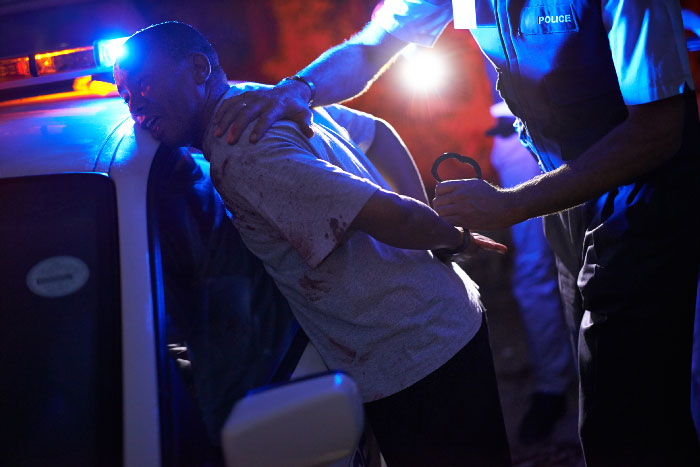What is Assault in the Third Degree in New York?
Assault in the Third Degree is the basic misdemeanor adult charge in New York. This class A misdemeanor is punishable by up to 1 year in jail. A person is guilty of Assault in the Third Degree when he or she:
- With intent to cause physical injury to another person, causes such injury to such person or to a third person; or
- Recklessly causes physical injury to another person.
If you or a loved one is charged with Assault in the Third Degree in NYC, retaining an experienced NYC Assault Lawyer is crucial in achieving a favorable outcome.
If that definition raises questions in your mind, you’re not alone. What exactly does “physical injury” mean? What constitutes “recklessly?”
Misdemeanor Assault in NYC
 There is one additional type of misdemeanor Assault, but it is one that’s rarely charged. Physical injury by means of a deadly weapon or dangerous instrument is a misdemeanor if the injury occurred as the result of criminal negligence rather than intentionally.
There is one additional type of misdemeanor Assault, but it is one that’s rarely charged. Physical injury by means of a deadly weapon or dangerous instrument is a misdemeanor if the injury occurred as the result of criminal negligence rather than intentionally.
Depending upon the facts of the case and the defendant’s history, it may be possible to negotiate a plea bargain to a violation rather than a crime, or to arrange for an Adjournment in Contemplation of Dismissal (ACD). In fact, under some circumstances it is possible to have the case dismissed entirely. The facts of every case are unique.
Harassment in the Second Degree
Harassment in the Second Degree is often charged along with Assault in the Third Degree. The most common form of Harassment in the Second Degree involves physical contact such as a kick or shove. But unlike Assault, Harassment in the Second Degree does not require physical injury.
Harassment in the Second Degree is a violation and not a crime, and any conviction will ultimately be sealed, unless the case is classified as Domestic Violence. Where Domestic Violence is involved, the conviction may only be sealed with the consent of the District Attorney.
Another type of Harassment in the Second Degree involves following a person in public and behaving in such a way as to cause annoyance or alarm.
New York Assault Cases and Orders of Protection
Often when a person is charged with Assault the District Attorney will typically request an Order of Protection, which will almost always be granted by a Judge. This is especially so in cases of alleged Domestic Violence or if the person arrested and charged with Assault and the complaining witness know each other. The Order of Protection requires a person to stay away from the complaining witness and bars contact of any kind. In addition, the Order of Protection will stay in effect during a case and may be part of a disposition, unless the case is dismissed.
If a person is convicted of Assault in the Third Degree, an Order of Protection will remain in effect for up to 5 years from the date of conviction. If a person is convicted of a violation such as Harassment in the Second Degree or Disorderly Conduct, which usually occurs by plea bargain, the Order of Protection will remain in effect for 2 years from the date of conviction or plea. If a person charged with Assault receives and accepts an Adjournment in Contemplation of Dismissal, or ACD, the Order of Protection will be in effect for 6 months from the date of the acceptance of the ACD. However, the if the Assault charge is related to alleged Domestic Violence, and if a person charged with Assault is offered an ACD, it is called a Family ACD and the Order of Protection will be in effect for 12 months from the date of acceptance.
Defenses to Assault Charges in New York: Self-Defense and Justification
In New York, self-defense is known as justification. Self-defense or justification includes defense or oneself and the defense of another person. When a person is charged with Assault, a defense attorney may raise justification as a defense to the charge. However, justification is known as an affirmative defense, which means the burden of proof of justification at trial is by preponderance of the evidence. This is much lower standard than proof beyond a reasonable doubt, the prosecutor’s burden at trial.
In order to claim justification, the person charged with Assault cannot be the initial aggressor. Nor can the person use force that is so out of proportion with the initial attack. Although, justification may be an issue raised at trial, if in fact an Assault prosecution is based on self-defense, an experienced defense attorney may be able to head off a trial and convince a prosecutor to dismiss a case outright. However, each case rests upon a unique set of facts.
Speak With a NYC Assault Attorney Today
If you or a loved one is charged with Assault in New York City, we’re here to help.
Contact The Law Firm of Andrew M. Stengel
Contact us via the live chat below, through our contact form here, or call us at (212) 634-9222. Initial consultations are free and confidential, and you will speak with Andrew M. Stengel directly.
Our offices are located at 11 Broadway, Suite 715, New York, NY 10004, and we handle cases throughout New York City, Nassau, Westchester and the surrounding counties.


